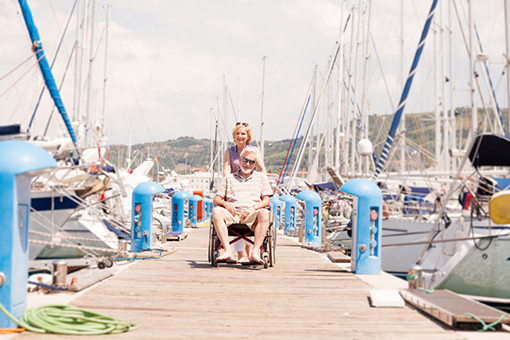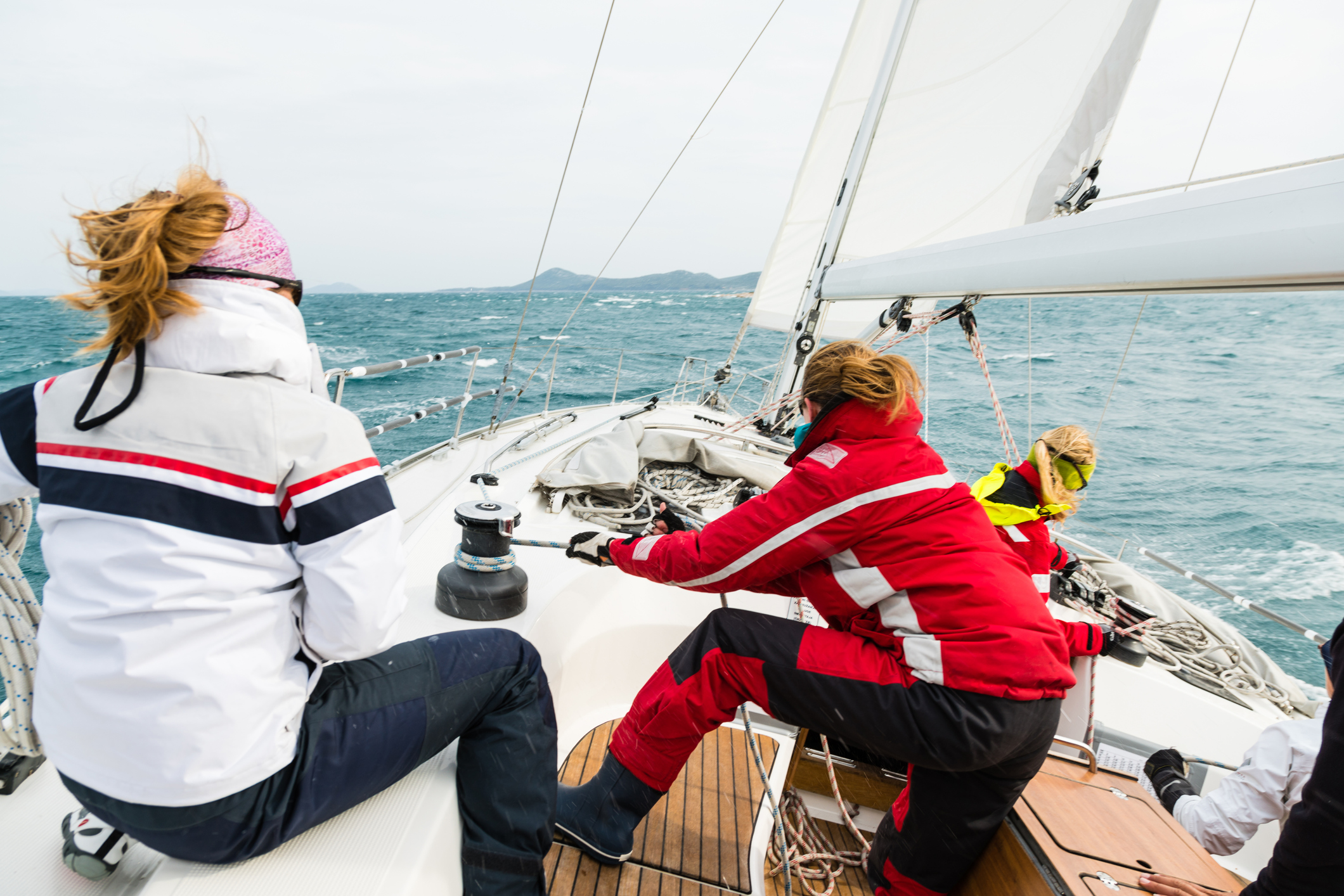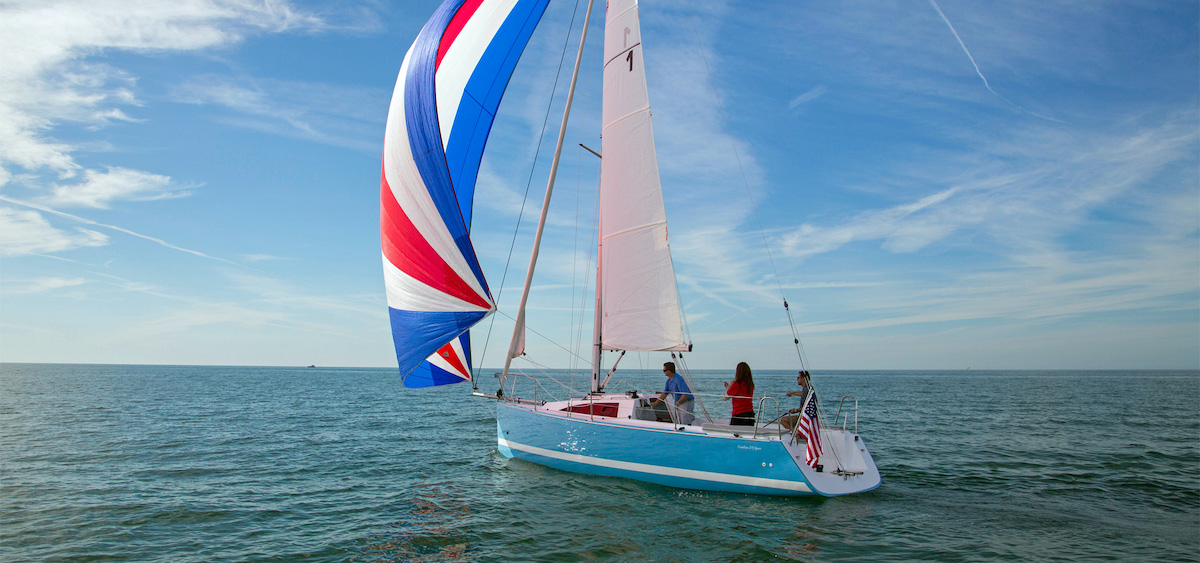Adaptive boating programs are making waves in the sailing community, opening the door for people of all abilities to experience the joy and freedom of being out on the water.
In this blog post, we'll explore:
- General safety guidelines for adaptive boating
- Available classes and resources
Let's dive in and discover how everyone can enjoy the benefits of spending a day on the water!
Safety Tips for Adaptive Sailing and Boating
Like any boating activity, prioritizing safety is paramount for adaptive boating experiences. The good news is, with a few adjustments and considerations, everyone can have a fun and secure day out on the water.
Explore our Boating Safety Guide
The most straightforward approach to safety is to follow all of the standard rules. For example, everyone must wear a life jacket, follow the boat captain's rules, and have a safety plan in place.
So, what's the difference? Adaptive sailors may have specific needs due to balance or temperature regulation. Here's where the crew shines! Constant assessment and communication are key to finding the safest way for everyone to participate.
If a sailor struggles with communication, ask their caregiver or companion for safe procedures. Now, you can create a safety plan for everyone involved and share it with anyone working with them.
Also, the facility you're operating at must comply with the Americans with Disabilities Act (ADA), which reviews proper dock set-ups, restrooms, and other vital topics. You can also explore U.S. Sailing's full Adaptive Sailing Resource Manual. It offers various f in-depth information relevant to adaptive sailing, such as boats to consider, risk management, and more.
Adaptive Sailing Classes
The U.S. Sailing organization has an incredible resource that can connect you with adaptive sailing courses nationwide. These classes typically cover basic boat handling, the ins and outs of a sailboat, and general guidelines.
Essentially, these courses cater specifically to sailors with disabilities, including those who are blind or visually impaired. So, no matter your experience level, there is a program out there waiting to welcome you aboard!
One program that caught our eye is The Brendan Sail Training Program, as their focus goes beyond just teaching sailing skills. They use the power of sailing to help young people build confidence and self-esteem.
Learning to sail is an adventure, but the real treasure is the sense of accomplishment and self-belief these sailors take away with them. And that's exactly what adaptive sailing programs strive for – to empower everyone to experience the joy of sailing!
Adaptive Sailing Resources
The world of adaptive boating and sailing is growing, and we've already discussed available ways to locate courses and opportunities to get involved. But there's more to the picture! Let's explore some additional resources that can be helpful.
1. Bay Area Association of Adaptive Sailors
Have you heard of the Bay Area Association of Adaptive Sailors (BAADS)? This fantastic volunteer-run charity is all about making sailing accessible for everyone, regardless of ability, age, or background. They primarily use keelboats and dinghies, making them an excellent option for various sailors.
2. U.S. Sailing's Adaptive Sailing Instructor Workshop
Are you considering running your own adaptive sailing program? The U.S. Sailing Adaptive Sailing Instructor Workshop is an excellent resource. It covers everything you need to know to start a course or keep yours running smoothly.
3. U.S. Para Sailing Championships
Calling all competitive spirits! The U.S. Para Sailing Championships, a multi-class sailing regatta with a rich history dating back to 1986 (originally called the U.S. Independence Cup), might be the perfect event for you. Witness adaptive sailing at its finest as athletes showcase their skills and determination on the water.
Explore Adaptive Boating & Sailing Opportunities
Imagine the feeling of freedom and joy you experience on the water. Unfortunately, this experience isn't always accessible for people with disabilities. That's why adaptive boating programs are so important. As a boating community, let's work together to spread the love of being on the water and make it accessible to everyone.


